Humans
Sign up for our newsletter
We summarize the week's scientific breakthroughs every Thursday.
-
 Psychology
PsychologySome irritability is normal. Here’s when it’s not
Irritability is a normal response to frustrations, but it can sometimes signal an underlying mental health disorder, like depression or anxiety.
-
 Health & Medicine
Health & MedicineGLP-1 drugs failed to slow Alzheimer’s in two big clinical trials
Tantalizing results from small trials and anecdotes raised hopes that drugs like Ozempic could help. Despite setbacks, researchers aren’t giving up yet.
By Meghan Rosen -
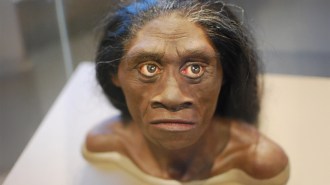 Anthropology
AnthropologyDrought may have doomed the ‘hobbits’ of Flores
Stalagmite data suggest Homo floresiensis faced prolonged drought that stressed both them and their prey, contributing to their disappearance.
-
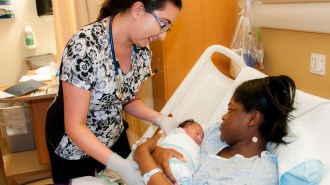 Health & Medicine
Health & MedicineA CDC panel has struck down universal newborn hepatitis B vaccination
A reshaped vaccine committee voted to scale back newborn hepatitis B shots despite decades of data showing the birth dose is safe, effective and vital.
-
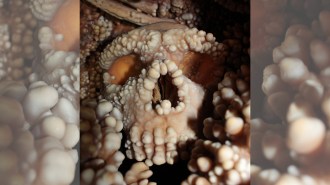 Anthropology
AnthropologyBig Neandertal noses weren’t made for cold
Tiny cameras threaded inside a Neandertal skull provide evidence that their big noses were not an adaptation to cold climates.
By Tom Metcalfe -
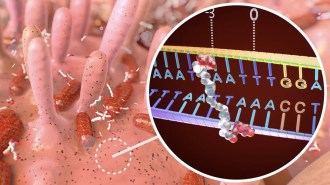 Health & Medicine
Health & MedicineHow a bacterial toxin linked to colon cancer messes with DNA
A closeup look at colibactin’s structure reveals chemical motifs that guide its mutation-wreaking “warheads” to specific stretches of DNA.
By Elise Cutts -
 Psychology
PsychologyChatbots spewing facts, and falsehoods, can sway voters
Chatbots that dole out fact-laden arguments can sway voters. Those facts don’t have to be true.
By Sujata Gupta -
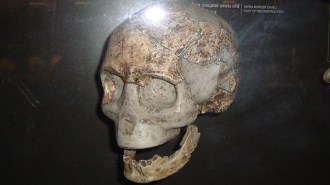 Humans
HumansAncient southern Africans took genetic evolution in a new direction
An ancient, shared set of human-specific genes underwent changes in a geographically isolated population after around 300,000 years ago, scientists say.
By Bruce Bower -
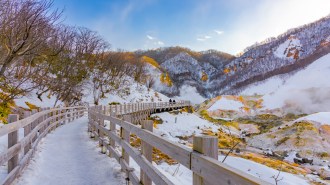 Health & Medicine
Health & MedicineSelf-hypnosis with cooling mental imagery could ease hot flashes
Postmenopausal women who listened to self-guided hypnosis recordings daily for six weeks saw meaningful improvements in hot flash symptoms.
By Meghan Rosen -
 Health & Medicine
Health & MedicinePersonalized ‘prehabilitation’ helps the body brace for major surgery
A small study finds that individualized prehab can dampen harmful immune responses and may reduce complications after an operation.
By Anna Gibbs -
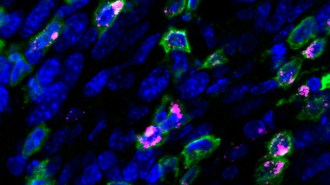 Humans
HumansA therapeutic HPV vaccine shrank cervical tumors in mice
An HPV vaccine delivered into the nose can treat cervical tumors in mice. The vaccine targets a cancer protein produced by the virus.
By Meghan Rosen -
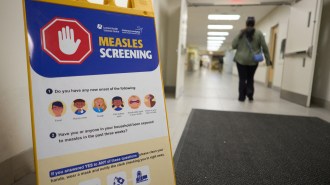 Health & Medicine
Health & MedicineCanada just lost its measles elimination status. Is the U.S. next?
Canada has had more than a year of continuous measles transmission. The United States has until January to limit cases before losing status.